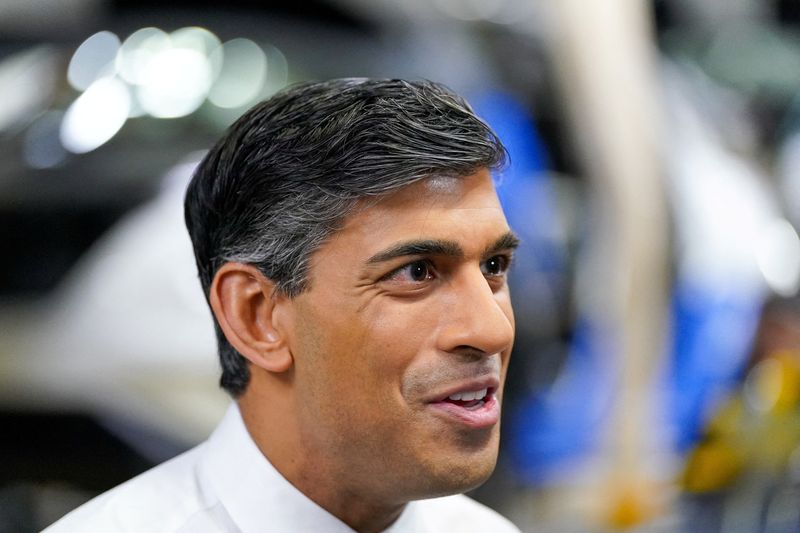Prime Minister Rishi Sunak has announced private sector investment of 29.5 billion pounds ($36.76 billion) in Britain, before hosting international executives in his bid to return the country to a top foreign investment (FDI) destination in Europe.
Australian funds IFM Investors and Aware Super will pump £10 billion and £5 billion respectively into projects ranging from infrastructure and the energy transition to affordable housing, Sunak’s Downing Street office said in a statement.
Spanish energy giant Iberdrola added £7 billion to its investment plans in the UK, which include electricity transmission and distribution networks.
Other projects mentioned in the statement include a £2.5 billion investment in artificial intelligence infrastructure by Microsoft.
“Attracting global investment is at the heart of my plan to grow the economy,” Sunak said in a statement published ahead of his investment “summit” on Monday at London’s 16th-century Hampton Court palace.
The UK, like many other countries, is seeking private sector investment to help reset the economy towards a net-zero era and build infrastructure that overstretched public finances cannot finance alone.
But some big investors say the political and regulatory uncertainty caused by the 2016 Brexit referendum has reduced Britain’s attractiveness in recent years, while other countries have made themselves more attractive to foreign direct investment.
France last year overtook Britain as the European country with the largest number of new FDI projects. French President Emmanuel Macron announced an investment commitment of 13 billion euros ($14.18 billion) in his country at a similar FDI summit in May.
Sunak said new funding for sectors such as clean energy, life sciences and advanced technology would create high-quality jobs across the UK.
Prominent financiers Stephen Schwarzman of Blackstone, David Solomon of Goldman Sachs and Jamie Dimon of JP Morgan Chase are expected to attend the event on Monday.
The UK government recognizes that it must do more to compete, as evidenced by a review carried out after the country lost a number of important investments.
Britain now lags behind France and Germany in terms of attractiveness for foreign direct investment, according to accounting firm EY.
But the country has had some recent successes, including the announcement on Friday that Nissan will produce electric cars in the north east of England.
The UK plans to set up a concierge service to help potential investors deal with the government.
“When a company comes to the British government, they don’t want to deal with five different departments. They want to deal with one person,” Investment Secretary Dominic Johnson told Reuters ahead of an event at Hampton Court on Monday.
This would allow ministers to have “very robust and honest discussions with the international investment community about how we can make the environment more viable for investment,” he said.
British Chancellor of the Exchequer Jeremy Hunt on Wednesday announced long-term tax breaks to boost business investment, which he hopes will help jumpstart the country’s sluggish economy.
IFM’s UK investment plan of £10 billion is an increase from last year’s initial announcement of £3 billion, while all other projects announced by the government are new, a government official said. ($1 = 0.8025 pounds) ($1 = 0.9168 euros) (Writing by William Schomberg and Alistair Smout, Editing by Louise Heavens)

“Coffee trailblazer. Analyst. General music geek. Bacon maven. Devoted organizer. Incurable internet ninja. Entrepreneur.”







